Text
Well, I got most of it done but I had to push back several of these tasks due to a surprise project I got handed last week. Maybe this week will be the week to finish these?
Unfortunately this is a very important work week for me and I have so many things to do before a bunch of March 1st deadlines, so I’m leaving a to do list here for motivation.
Week of 2/19-2/25
Pick breakfast recipes
Email breakfast ingredients to C
Have full draft of fellowship application done
Recipes for camp cooking sessions selected
Figure out second field trip
Set up guest lecture w/ D
Meet w/ Z about professional curriculum plan
Finish fact sheet for Y
Email fact sheet for PS
Finalize and send grant survey
Confirm beekeeping lesson w/ A
Finish program change edits
Email program edits to T
Catch up on grading
Dishes
Recycling
Laundry (S - W - D - F - A)
Set up car appointment
Clean up books
2 notes
·
View notes
Text
Unfortunately this is a very important work week for me and I have so many things to do before a bunch of March 1st deadlines, so I’m leaving a to do list here for motivation.
Week of 2/19-2/25
Pick breakfast recipes
Email breakfast ingredients to C
Have full draft of fellowship application done
Recipes for camp cooking sessions selected
Figure out second field trip
Set up guest lecture w/ D
Meet w/ Z about professional curriculum plan
Finish fact sheet for Y
Email fact sheet for PS
Finalize and send grant survey
Confirm beekeeping lesson w/ A
Finish program change edits
Email program edits to T
Catch up on grading
Dishes
Recycling
Laundry (S - W - D - F - A)
Set up car appointment
Clean up books
2 notes
·
View notes
Text
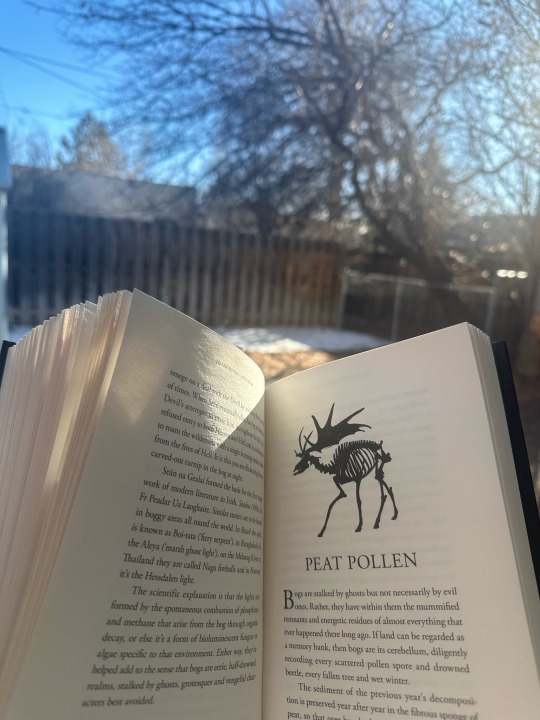

2/19/24 - good books & goofy deer
65 notes
·
View notes
Text
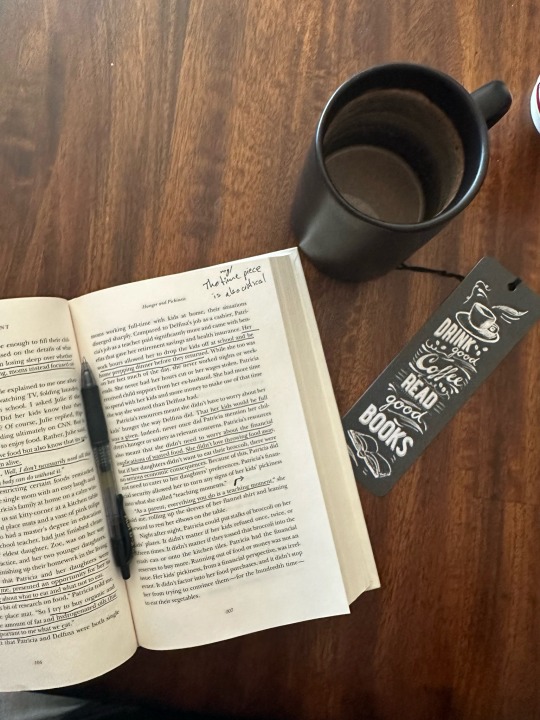
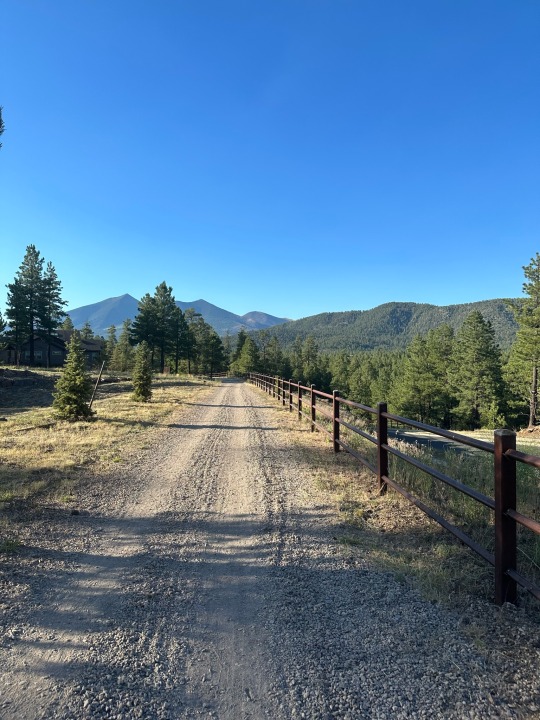
best part of summer
229 notes
·
View notes
Text
More thesis writing tips from someone who just finished writing their thesis
I have already made a couple of thesis related posts in these past months: thesis writing tips from someone who is currently writing their thesis, my thesis notebook, my process for writing a chapter of my thesis. After finishing my thesis here are some more tips and useful things that came to mind! (If you are interested I documented the process of my work in specific daily posts all tagged as #thesis diary).
ask all the more technical information ahead of time, margins, font, size, the way the footnotes should be written, how you are supposed to include quotes in the text, everything. The early you know about this stuff the better because it will be less likely for you to miss something when fixing the final version.
copying all the chapters in one single file will cause problems, be aware of it.
I personally wrote individual chapters on different files in order to then send them to my professor. I ended up having to rewrite the whole thing in one file cause by just copying and pasting it the file got messed up and didn't show both the footnotes and the page number. I would recommend maybe writing everything in a document with all the correct settings and then copying single chapters in different files to send to professors. That way you shouldn't have my problem. Or simply calculate more time to rewrite everything, that could also be a tecnique to make sure the texts works as a whole.
if you have long chapters that touch multiple subjects make sure you have a list with the order of everything in the chapter so that if you have to add new information regarding something you won't have to reread the whole thing just to look for the paragraph you need. I would have needed something like this at the very end but I unfortunately did not have anything like it.
rembember that people reading your thesis don't know as much as you do on the subject you are writing about. This means that you probably have more material than you think you do, because you'll need to explain even what you think are basic facts of the subject, and that you need to repeat certain informations more than once. If you are talking about someone don't assume people will remember about when you first introduced them 20 pages ago, add a brief line to remind everyone who they are.
highlighters and colourful tabs are your best friends when organizing what piece of information goes in which chapter. I personally did a big rereading of all my notes with different highlighters in hand, I associated a colour to each chapter and then just marked all the information I wanted to include with the right colour.
before starting with a chapter create a big brain dump even if you have more or less a good idea of what to include, often you get even more interesting ideas that you can add.
having someone to help with rereading everything can be super helpful. I was personally very grateful to my family cause having them reread the stuff I wrote helped me find so many typos and mistakes I made like repetitions of words I had not seen. When you know what you are about to read you can often skip errors you made.
fiding titles for the thesis and for chapters is a nightmare. I struggled so much cause I had no idea where to start. What you want to do is individuate key words that can represent what is included in the chapter and work from there.
if you write a thesis that includes a research you personally did in the conclusion make sure to add prompts for further researches that could be made on the subject, that is always a nice addition to make.
you will rewrite things a million times, be aware of it from the start, and accept it as your fate.
synonyms, look for synonyms when writing. If you are anything like me you tend to use some few words more than others, but with this type of writing it is necessary to vary your vocabulary. Plus when looking for synonyms you might find words that work much better that what you had in mind.
you will find yourself struggling with writing certain sentences. Sometimes you have the informations but you sentence just does not work, it can be too long, too wordy, too confused. When that happens deleated it. Think of the key words of the sentence and what you want to say and try to write it down in a completly different manner than before, sometimes that can help with finding the right set of words.
you will have to write a bibliography, my advice is to store all the sources you use in one file as soon as you have used them in the thesis. This way you'll make sure you don't forget any. Then make sure you have written them all in the same style, and after having them in alphabetical order you are good to go. (pro tip: if you're graduating in history make sure to separate the primary sources from the secondary sources, that will look even more professional, plus if you like me had to work with particular sources like hadwritten ones make sure you specify it)
do your best to highlight your original work, your hypothesis, your thoughts, the difficult stuff you did for the research (like in my case working with handwritten sources). It is very important even if you use an impersonal tone while writing (which tbh is much better for a thesis).
you have doubts on something? Something cannot be said for certain? You had a specific question you wanted to reseach but didn't find much? Write about it. Say there is an hypothesis but it's not clear and explain the reasons why (both why you have a certain idea and why it cannot be said for sure). Say you looked for informations regarding something but you found none, or very little. Those are all precious informations for a reseach even if it doesn't look like so right away.
it's also important to analyze sources that have previously researched the subject you are talking about. Include that, talking about the sources you used as well as the previous researches that have been done is fundamental, and elevates your work.
These are all the tips and advices that came to mind at the moment. I am sure I am forgetting about something, because there is so much that can be said on this subject. I really hope this was somewhat helpful, especially alongside my other posts. Here's also a link to my masterlist of studying tips post just in case.
165 notes
·
View notes
Text
To do list for the weekend
Friday
Get packing tape
Laundry
Dishes
Pack decor
Pack books and notebooks
Pack shoes
PT
Saturday
Check in with E about L & A
Pack kitchen
Pack bathroom
Get uhaul at 10
Move!!!
PT
Sunday
Clean old apartment
Hand in keys
Email PF
Write draft email for recruitment
Finish all IRB stuff
Start unpacking
Goodwill drop off
R’s long run
PT
1 note
·
View note
Text

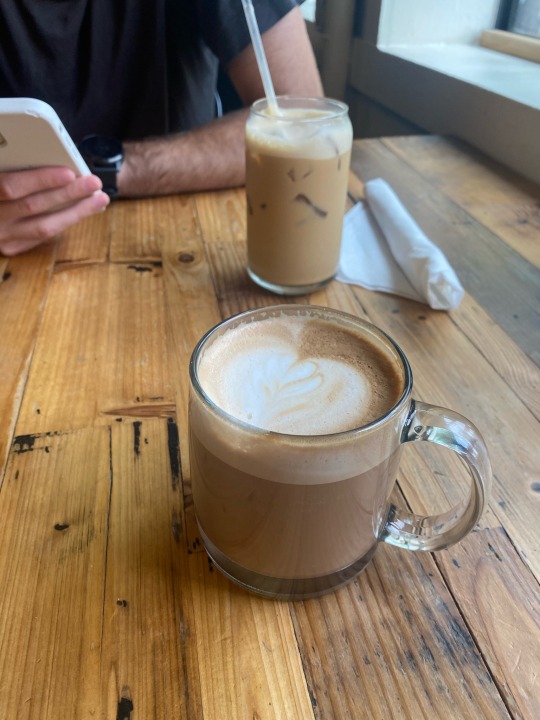
Life recently: Channeling fall vibes even though it’s July 😅
Working on writing my thesis and making IRB edits so I can actually start my research
Trying to get in the habit of practicing the languages I’m learning consistently (Italian, Spanish, and Russian)
Prepping to move in with one of my best friends!
Coffee dates with my love while we both avoid our work 😂
Hoping to start posting consistently this year? Last year of my masters means I’m mostly going to be doing writing and research on my own.
18 notes
·
View notes
Text
WEBSITES FOR WRITERS {masterpost}
E.A. Deverell - FREE worksheets (characters, world building, narrator, etc.) and paid courses;
Hiveword - Helps to research any topic to write about (has other resources, too);
BetaBooks - Share your draft with your beta reader (can be more than one), and see where they stopped reading, their comments, etc.;
Charlotte Dillon - Research links;
Writing realistic injuries - The title is pretty self-explanatory: while writing about an injury, take a look at this useful website;
One Stop for Writers - You guys… this website has literally everything we need: a) Description thesaurus collection, b) Character builder, c) Story maps, d) Scene maps & timelines, e) World building surveys, f) Worksheets, f) Tutorials, and much more! Although it has a paid plan ($90/year | $50/6 months | $9/month), you can still get a 2-week FREE trial;
One Stop for Writers Roadmap - It has many tips for you, divided into three different topics: a) How to plan a story, b) How to write a story, c) How to revise a story. The best thing about this? It’s FREE!
Story Structure Database - The Story Structure Database is an archive of books and movies, recording all their major plot points;
National Centre for Writing - FREE worksheets and writing courses. Has also paid courses;
Penguin Random House - Has some writing contests and great opportunities;
Crime Reads - Get inspired before writing a crime scene;
The Creative Academy for Writers - “Writers helping writers along every step of the path to publication.” It’s FREE and has ZOOM writing rooms;
Reedsy - “A trusted place to learn how to successfully publish your book” It has many tips, and tools (generators), contests, prompts lists, etc. FREE;
QueryTracker - Find agents for your books (personally, I’ve never used this before, but I thought I should feature it here);
Pacemaker - Track your goals (example: Write 50K words - then, everytime you write, you track the number of the words, and it will make a graphic for you with your progress). It’s FREE but has a paid plan;
Save the Cat! - The blog of the most known storytelling method. You can find posts, sheets, a software (student discount - 70%), and other things;
I hope this is helpful for you!
(Also, check my blog if you want to!)
72K notes
·
View notes
Text
Skip Google for Research
As Google has worked to overtake the internet, its search algorithm has not just gotten worse. It has been designed to prioritize advertisers and popular pages often times excluding pages and content that better matches your search terms
As a writer in need of information for my stories, I find this unacceptable. As a proponent of availability of information so the populace can actually educate itself, it is unforgivable.
Below is a concise list of useful research sites compiled by Edward Clark over on Facebook. I was familiar with some, but not all of these.
⁂
Google is so powerful that it “hides” other search systems from us. We just don’t know the existence of most of them. Meanwhile, there are still a huge number of excellent searchers in the world who specialize in books, science, other smart information. Keep a list of sites you never heard of.
www.refseek.com - Academic Resource Search. More than a billion sources: encyclopedia, monographies, magazines.
www.worldcat.org - a search for the contents of 20 thousand worldwide libraries. Find out where lies the nearest rare book you need.
https://link.springer.com - access to more than 10 million scientific documents: books, articles, research protocols.
www.bioline.org.br is a library of scientific bioscience journals published in developing countries.
http://repec.org - volunteers from 102 countries have collected almost 4 million publications on economics and related science.
www.science.gov is an American state search engine on 2200+ scientific sites. More than 200 million articles are indexed.
www.pdfdrive.com is the largest website for free download of books in PDF format. Claiming over 225 million names.
www.base-search.net is one of the most powerful researches on academic studies texts. More than 100 million scientific documents, 70% of them are free
212K notes
·
View notes
Text
towards a gentle academic
be up front and honest about the things you do not know
acknowledge the intrinsic value of others’ knowledge bases, even if they do not seem important to you from your institutional context
do not feign mastery where you have none
respect the gaps in others’ knowledge bases
be generous, not only with others
but also with yourself
you overwork yourself at the risk of legitimizing a culture of overwork
privilege voices and perspectives that have historically been left out of the academy
nothing is ever neutral or apolitical
support the progress of other scholars
collaboration over competition
29K notes
·
View notes
Text
How I got a B2 in Italian in 1.5 years
Anon requested me to share my secrets with you and I will try my best to do so. I don’t use all of these resources very regularly, but I think they could all help you with your studies. Some of these resources will be in Dutch, because that happens to be my native language. I included them because there might be Dutch speakers reading this and some resources might also exist in other languages.
Dictionaries
Invest in a good dictionary!
Online dictionaries can prove very useful because they’re faster, but books are often more accurate
I use both, but am yet to find a good online Dutch-Italian dictionary
(For native Dutch speakers: I highly recommend Van Dale)
Duolingo
Vocabulary and grammar (app/website)
Took me about 6 months to finish
Use the desktop version: it’s where you can find the grammar
Take notes of the grammar!!
It’s not always 100% accurate but the basics are explained very well
Write down the vocabulary
I made a word document that went article + Dutch word/article + Italian word/article + Italian plural
(shoot me a message if you want it!)
I finished the tree before starting books, because I don’t like the idea of working with two (or more) different “full” resources at the same time
With “full” I mean that they’re not additional information you look up so you can understand a concept better, but actual resources that you’re going to study as a whole
Tinycards
Flashcards (app/website)
This app is also from Duolingo: for Italian, they’ve got flashcards for the Duolingo tree, so you don’t have to make them anymore! Sadly I only discovered this months after I finished the Duolingo tree so it wasn’t useful for me anymore, but honestly I think that’s a blessing if you want to repeat vocabulary!
You can also make your own flashcards: you can keep them private or not and they’ve got audio.
Memrise
Vocabulary (app/website)
I heard a lot about it, saying it was good for vocabulary so I thought I should give it a try.
I didn’t like it, I don’t really know why: I think it’s a good app, it just didn’t work for me.
Quizlet
Flashcards (app/website)
Make your own flashcards or use decks made by others.
There are also other things like diagrams but I haven’t tried that so I wouldn’t know how it works
Tandem
Conversation practice (app)
It’s an app to chat with natives of the language you’re learning
Possibility to send voice messages, there’s an in-app dictionary, you can send pictures, you can video chat or call and most importantly: if there might be any problems, you can report and block.
I have not encountered a single person who is not there for learning, a problem that apparently exists on other apps.
You can also pay to get classes by teachers on there, and they’ve also got Tandem Pro without adds and probably some other advantages, but the free version is great as well
Beelinguapp
(Audio) books (app)
It’s mostly short stories and fairy tales
Some are paying, some not
You can turn on the audio
La Repubblica
Newspaper (app/website)
I turned on notifications for this one, so I can see what the important stuff is in Italy right now
I don’t often read whole articles, but I should because it’s great reading practice + you learn about politics, culture…
Newspapers often use a more difficult language, so I recommend this to people who are intermediate
Assimil Italian
Vocabulary + grammar (book)
I started this after finishing the Duolingo tree and then it’s not useful, because it starts from scratch.
Good alternative if you don’t like using apps like Duolingo
It has audio’s
(Got it from @lovelybluepanda)
Colloquial Italian
Vocabulary + grammar (book + CD)
I only got the book and not the CD (I got the book from lovelybluepanda‘s account, idk if she’s even got the CD?)
I liked it, although too easy because I had already finished Duolingo.
Very good grammar explanations
Modern Italian Grammar
Grammar (book)
Just plain grammar, but great explanations
I started taking notes from it, but rn I’m redoing it because 1) I should revise my grammar 2) the first notes I made were awful 3) I didn’t even get to 1/3 of the book
It’s a lot, but I love it
It has a workbook! Great exercises!
I also got this one from lovelybluepanda
Snelcursus Italiaans: grammatica
Grammar (book)
As you might have guessed, it’s in Dutch. But because it’s a translation from German (Durchstarten in Italienisch-Grammatikk) I thought there might be other translations out there :)
I use it to look up stuff, not so much to actually study from
Qui Italia più: corso di lingua italiana per stranieri: livello medio (quaderno di esercitazioni pratiche)
Exercises (book)
This one is completely in Italian
Varied exercises
Nuovo progetto italiano: quaderno degli esercizi
Grammar, vocabulary, exercises (book + CD’s)
Got this one at my language school in Rome and I quite like it (I got the B2 version)
Lots of different exercises, listening practice, reading, conjugations…
Diary
I’m not the type of person who keeps a diary but I’m trying to keep one for Italian and Norwegian. Just talking a bit about your daily/weekly activities, feelings… can make you feel more familiar with the language
If you’ve got a bullet journal, maybe you can do it in Italian?
Visit Italy
Easier said than done? You’re right about that.
I’ve recently spent 3 weeks in Rome with a language school while staying in a host family and honestly I learned so much. I don’t speak Italian with anyone here and speaking Italian all day long improved my level so much.
So if you have the possibility: plan a trip to Italy, talk with natives (in my experience: they’ll be more than happy to chat with you).
If people start to talk to you in English, don’t be scared to switch to Italian. Most of the time they’re very excited you speak the language!
Other tips
Switch your phone/tablet/computer/… language to Italian
Learn the alphabet!!
A thing I was too lazy to do so after 1.5 years I still don’t know it and believe me, that can be annoying
Look for other resources! Especially in your native language!
Do not solely rely on this one post please
Follow as many Italian langblrs as you can: search for Italian vocab lists/grammar posts/… and follow the people who made them, there are also posts out there with lists of Italian langblrs (I’ll make a list with the ones I follow below)
Translate: I like to translate parts of wikipedia articles, Dutch to Italian or Italian to Dutch
Make a topic jar: lovelybluepanda has got a post with topic ideas
Listen to music, podcasts…
Watch Italian tv! Italian tv is unbelievably shitty but I like to watch quizzes in particular because if you don’t understand one part, that’s no problem: the next part will be about something different.
Read books! You can start with children’s books, from B1 books like the first Harry Potter books are doable, What I also find a good idea is reading a book in Italian that you’ve already read several times in your native language. That way you already know the story line and it’s not a problem if a certain part is too difficult for you
Italian langblrs/tumblrs
@langsandlit @italianformygirlfriend @italianwithilaria @organizedstudy @lingolden @dreamingindifferentlanguages @welcometoitalia @foxlanguages @songiprilingvoj @uranusstudies @languageswithceles @gollyplot @universallanguagelearner @livinglanguages @baronessoflanguages @a-study-in-shakespeare @fritalianblr @italianlangblr @sayitaliano @sciogli-lingua @languagestudyblr @suplanguages @learninghowtopasta @polyglottraveler
2K notes
·
View notes
Text
625 words to know
Italian version
(English explanation and more resources here)
• Animali: il cane (dog), il gatto (cat), il pesce (fish), l’uccello (bird), la mucca (cow), il maiale (pig), il topo (mouse), il cavallo (horse), l’ala (wing), l’animale (animal), la zampa (paw)
• Mezzi di trasporto: il treno (train), l’aereo / l’aeroplano (plane), la macchina / l’auto / l’automobile (car), il camion (truck), la bici / la bicicletta (bicycle), il pullman / il bus (bus), la barca (boat), la nave (ship), la ruota (tire), il carburante (gasoline), il motore (engine), il biglietto (ticket), i mezzi di trasporto (transportation)
• Luoghi: la città (city), la casa (house), l’appartamento (apartment), la strada (street/road), l’aeroporto (airport), la stazione (train station), il ponte (bridge), l’albergo / l’hotel (hotel), il ristorante (restaurant), la fattoria (farm), il campo (court - sport), la scuola (school), l’ufficio (office), la stanza (room), la cittadina (town), l’università (university), il club (club), il bar (bar), il parco (park), il campeggio (camp), il negozio (store/shop), il teatro (theater), la biblioteca (library), l’ospedale (hospital), la chiesa (church), il mercato (market), la Nazione / il Paese (country (USA, France, etc.)), l’edificio (building), il terreno (ground), lo spazio (space (outer space)), la banca (bank), la posizione / il posto (location)
• Abbigliamento: il cappello (hat), il vestito (dress), il completo (suit), la gonna (skirt), la camicia (shirt), la maglietta (T-shirt), i pantaloni (trousers /pants), le scarpe (shoes), la tasca (pocket), il cappotto (coat), la macchia (stain), i vestiti / l’abbigliamento (clothing)
• Colori: il rosso (red), il verde (green), il blu (blue), l’azzurro (light blue), il giallo (yellow), il marrone (brown), il rosa (pink), l’arancione (orange), il nero (black), il bianco (white), il grigio (gray), il colore (color)
• Persone: il figlio (son), la figlia (daughter), la madre (mother), il padre (father), i genitori (parent (= mother/father)), il neonato (newborn) / il bambino (baby), l’uomo (man), la donna (woman), il fratello (brother), la sorella (sister), la famiglia (family), il nonno (grandfather), la nonna (grandmother), il marito (husband), la moglie (wife), il re (king), la regina (queen), il presidente (president), il vicino (neighbor), il ragazzo (boy), la ragazza (girl), il bambino (child (= boy/girl)) (la bambina, girl), l’adulto (adult (= man/woman)), l’essere umano / l’umano (human (≠ animal)), l’amico (friend), la vittima (victim), il giocatore (player), il tifoso / il fan /l’appassionato (fan), la folla (crowd), la persona (person), la gente / le persone (people)
• Lavoro: l’insegnante (teacher), lo studente (student), l’avvocato (lawyer), il medico (doctor), il paziente (patient), il cameriere (waiter), il segretario / la segretaria (secretary), il prete / il sacerdote (priest), il poliziotto (police man), la polizia (police), l’esercito (army), il soldato (soldier), l’artista (artist), l’autore (author), il manager / il dirigente (manager), il reporter / l’inviato (reporter), l’attore (actor), il lavoro (job)
• Società: la religione (religion), il paradiso (heaven), l’inferno (hell), la morte (death), la medicina (medicine), i soldi (money), il dollaro (dollar), la banconota ((dollar) bill), il matrimonio (marriage), il matrimonio / le nozze (wedding), la squadra (team), la razza (race (ethnicity)), il sesso / il rapporto sessuale (sex (the act)), il sesso (sex (gender)), l’omicidio / l’assassinio (murder), la prigione (prison), la tecnologia (technology), l’energia (energy), la guerra (war), la pace (peace), l’attacco (attack), l’elezione (election), la rivista (magazine), il quotidiano / il giornale (newspaper), il veleno (poison), la pistola (gun), lo sport (sport), la gara (sportiva) (race (sport)), fare esercizio (to exercise), l’esercizio (exercise), la palla (ball), il gioco (game), il prezzo (price), il contratto (contract), la droga (drug), il cartello (sign (traffic)), il simbolo (sign), la scienza (science), Dio (God)
• Arte: la band / il gruppo (band), la canzone (song), gli strumenti (musicali) (instrument (musical)), la musica (music), il film (movie), l’arte (art)
• Bevande: il caffé (coffee), il té (tea), il vino (wine), la birra (beer), il succo (juice), l’acqua (water), il latte (milk), la bevanda (beverage)
• Alimenti: l’uovo (egg), il formaggio (cheese), il pane (bread), la zuppa (soup), la torta (cake), il pollo (chicken), il maiale / la carne suina (pork), il manzo / la carne bovina (beef), la mela (apple), la banana (banana), l’arancia (orange), il limone (lemon), il mais / il granoturco (corn), il riso (rice), l’olio (oil), il seme (seed), il coltello (knife), il cucchiaio (spoon), la forchetta (fork), il piatto (plate), la tazza (cup), la colazione (breakfast), il pranzo (lunch), la cena (dinner), lo zucchero (sugar), il sale (salt), la bottiglia (bottle), il cibo / gli alimenti (food)
• In casa: il tavolo (table), la sedia (chair), il letto (bed), il sogno (dream), la finestra (window), la porta (door), la camera da letto (bedroom), la cucina (kitchen), il bagno (bathroom), la matita (pencil), la penna (pen), la fotografia (photograph), il sapone (soap), il libro (book), la pagina (page), la chiave (key), la vernice (paint), la lettera (letter), l’appunto (note), il muro (wall), il foglio (paper), il pavimento (floor), il soffitto (ceiling), il tetto (roof), la piscina (pool), la serratura (lock), il telefono (telephone), il giardino (garden), il cortile (yard), l’ago (needle), la borsa (bag), la scatola (box), il regalo (gift), la carta / la tessera / il tesserino (card), l’anello (ring), l’attrezzo (tool)
• Elettronica: l’orologio (clock), la lampada (lamp), il ventilatore (fan), il (telefono) cellulare (cell phone), il network / il lavoro online (network),il computer (computer), il programma (program (computer)), il laptop / il portatile /il computer portatile (laptop), lo schermo (screen), la fotocamera (camera), il televisore (television), la radio (radio), l’elettronica (electronics)
• Corpo: la testa (head), il collo (neck), la faccia (face), la barba (beard), i capelli (hair), l’occhio (eye), la bocca (mouth), il labbro (lip), il naso (nose), il dente (tooth), l’orecchio (ear), la lacrima (tear (drop)), la lingua (tongue), la schiena (back), il dito del piede (toe), il dito (finger), il piede (foot), la mano (hand), la gamba (leg), il braccio (arm), la spalla (shoulder), il cuore (heart), il sangue (blood), il cervello (brain), il ginocchio (knee), il sudore (sweat), la malattia (disease), l’osso (bone), la voce (voice), la pelle (skin), il corpo (body)
• Natura: il mare (sea), l’oceano (ocean), il fiume (river), la montagna (mountain), la pioggia (rain), la neve (snow), l’albero (tree), il sole (sun), la luna (moon), il mondo (world), la Terra (Earth), la foresta (forest), il cielo (sky), la pianta (plant), il vento (wind), il terreno (soil/earth), il fiore (flower), la valle (valley), la radice (root), il lago (lake), la stella (star), l’erba (grass), la foglia (leaf), l’aria (air), la sabbia (sand), la spiaggia (beach), l’onda (wave), il fuoco (fire), il ghiaccio (ice), l’isola (island), la collina (hill), il calore / il riscaldamento (heat), la natura (nature)
• Materiali: il vetro (glass), il metallo (metal), la plastica (plastic), il legno (wood), la pietra (stone), la roccia (huge stone), il diamante (diamond), l’argilla (clay), la polvere (dust), l’oro (gold), il rame (copper), l’argento (silver), il bronzo (bronze), il mattone (brick), il materiale (material)
• Matematica/Misure: metro (meter), centimetro (centimeter), chilogrammo (kilogram), pollice (inch), piede (foot), libbra (pound), metà (half), il cerchio (circle), il quadrato (square), la temperatura (temperature), la data (date), il peso (weight), il bordo (edge), l’angolo (corner)
• Nomi vari: la mappa (map), il punto (dot), la consonante (consonant), la vocale (vowel), la luce (light), il suono (sound), il silenzio (silence), il rumore (noise), il buio (darkness), sì (yes), no (no), il pezzo (piece), il dolore (pain), l’infortunio (injury), il buco (hole), l’immagine (image), il motivo / la fantasia / il disegno (pattern), il nome (noun), il verbo (verb), l’aggettivo (adjective)
• Direzioni: sommità (top), fondo (bottom), lato (side), davanti (front), dietro (back), fuori (outside), dentro (inside), sopra (up), sotto (down), sinistra (left), destra (right), dritto (straight), nord (north), sud (south), est (east), ovest (west), la direzione (direction)
• Stagioni: l’estate (Summer), la primavera (Spring), l’inverno (Winter), l’autunno (Fall), la stagione (season)
• Numeri: 0, 1, 2, 3, 4, 5, 6, 7, 8, 9, 10, 11, 12, 13, 14, 15, 16, 17, 18, 19, 20, 21, 22, 30, 31, 32, 40, 41, 42, 50, 51, 52, 60, 61, 62, 70, 71, 72, 80, 81, 82, 90, 91, 92, 100, 101, 102, 110, 111, 1000, 1001, 10000, 100000, milione (million), bilione (billion), primo (1st), secondo (2nd), terzo (3rd), quarto (4th), quinto (5th), il numero (number) [ HERE ]
• Mesi: gennaio (January), febbraio (February), marzo (March), aprile (April), maggio (May), giugno (June), luglio (July), agosto (August), settembre (September), ottobre (October), novembre (November), dicembre (December)
• Giorni della settimana: lunedì (Monday), martedì (Tuesday), mercoledì (Wednesday), giovedì (Thursday), venerdì (Friday), sabato (Saturday), domenica (Sunday)
• Tempo: l’anno (year), il mese (month), la settimana (week), il giorno (day), l’ora (hour), il minuto (minute), il secondo (second), la mattina / il mattino (morning), il pomeriggio (afternoon), la sera (evening), la notte (night), il tempo (time)
• Verbi: lavorare (work), giocare / suonare / recitare (play), camminare (walk), correre (run), guidare (drive), volare (fly), nuotare (swim), andare (go), fermarsi (stop), seguire (follow), pensare (think) parlare / dire (speak/say), mangiare (eat), bere (drink), uccidere (kill), morire (die), sorridere (smile), ridere (laugh), piangere (cry), comprare (buy), pagare (pay), vendere (sell), sparare (shoot(a gun)), imparare (learn), saltare (jump), odorare (smell), sentire (hear (a sound)), ascoltare (listen (music)), assaggiare (taste), toccare (touch), vedere (see (a bird)), guardare (watch (TV)), baciare (kiss), bruciare (burn), sciogliere (melt), scavare (dig), esplodere (explode), sedere/ sedersi (sit), stare in piedi (stand), amare (love), odiare (hate), passare / oltrepassare (pass by), tagliare (cut), combattere (fight), distendersi (lie down), ballare (dance), dormire (sleep), svegliarsi (wake up), cantare (sing), contare (count), sposare / sposarsi (marry), pregare (pray), vincere (win), (perdere (lose), mescolare (mix/stir), piegare (bend), lavare (wash), cucinare (cook), aprire (open), chiudere (close), scrivere (write), chiamare (call), girare (turn), costruire (build), insegnare (teach), crescere (grow), disegnare (draw), nutrire (feed), prendere / prendere al volo / afferrare (catch), lanciare (throw), pulire (clean), trovare (find), cadere (fall), spingere (push), tirare (pull), portare /trasportare (carry), rompere (break), indossare (wear), appendere (hang), tremare (shake), firmare (sign), battere / picchiare (beat), sollevare (lift)
• Aggettivi: lungo (long), corto (short (long)), alto (tall), basso (short (vs tall)), largo (wide), stretto (narrow), grande (big/large), piccolo (small/little), lento (slow), veloce (fast), caldo /bollente (hot), freddo (cold), caldo / tiepido (warm), fresco (cool), nuovo (new), vecchio (old (new)), giovane (young), vecchio / anziano (old (young)), buono (good), cattivo (bad), bagnato (wet), asciutto (dry), malato (sick), sano (healthy), rumoroso (loud), tranquillo / calmo / silenzioso (quiet), felice (happy), triste (sad), bello (beautiful), brutto (ugly), sordo (deaf), cieco (blind), carino (nice), meschino / cattivo (mean), ricco (rich), povero (poor), spesso (thick), sottile (thin), caro / costoso (expensive), economico / conveniente (cheap), piatto (flat), curvo (curved), maschile (male), femminile (female), stretto /aderente (tight), largo / allentato (loose), alto (high), basso (low), morbido (soft), duro (hard), profondo (deep), superficiale (shallow), pulito (clean), sporco (dirty), forte (strong), debole (weak), morto (dead), vivo (alive), pesante (heavy), leggero (light (heavy)), scuro (dark), chiaro (light (dark)), nucleare (nuclear), famoso (famous)
• Pronomi:
(I) io,
(you) tu,
(he/she/it) lui / egli (m.), lei / ella (f.), esso (n.)
(we) noi
(you) voi
(they) loro / essi (m.), loro / esse (f.), loro / essi (n.)
** go check @sayitalianohome to find more vocabularies’ and grammar posts
188 notes
·
View notes
Text
How to Really Comprehend a Scientific Paper
**credit to my research advisor, she’s an amazing mentor and I aspire to be just like her someday :)
Read the abstract. Write down what the paper says it is going to be about.
Read the introduction. Write down what the paper says it is looking to accomplish and how.
Read the conclusion. Write down what the paper actually did accomplish.
Go through and find all the pictures, graphs, or diagrams. Write notes explaining these images to yourself.
Read the whole paper start to finish. Write a summary of the paper as though you are explaining it to a layperson, and then another summary as though you are explaining it to a colleague.
Throughout all of the above steps:
If there are words you don’t know google them and write down the definitions
If the paper defines a formula, law, variable, etc in a certain way write that down
If there are references to or recommendations of other literature write those down. After the last step if there’s anything you’re uncertain about or would like more information on look to that list for further reading
12K notes
·
View notes
Text
rereading my own writing is just a constant fluctuation between "damn, girl, you wrote this? (affectionate)" and "damn, girl, you wrote this? (derogatory)"
155K notes
·
View notes
Text
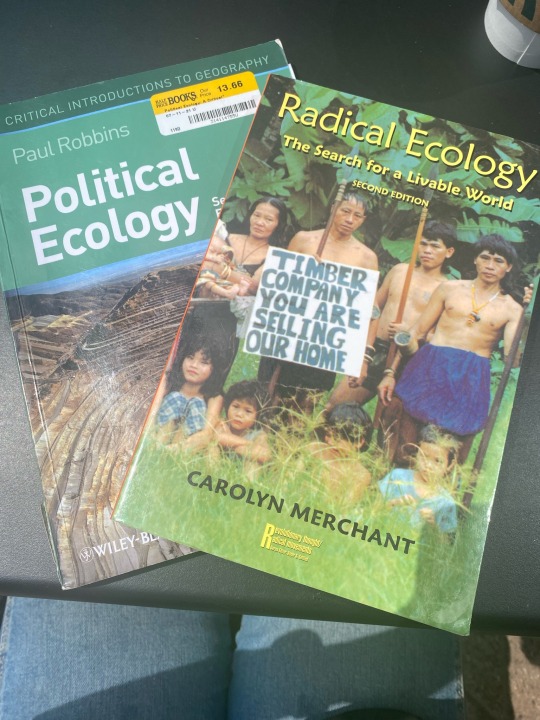
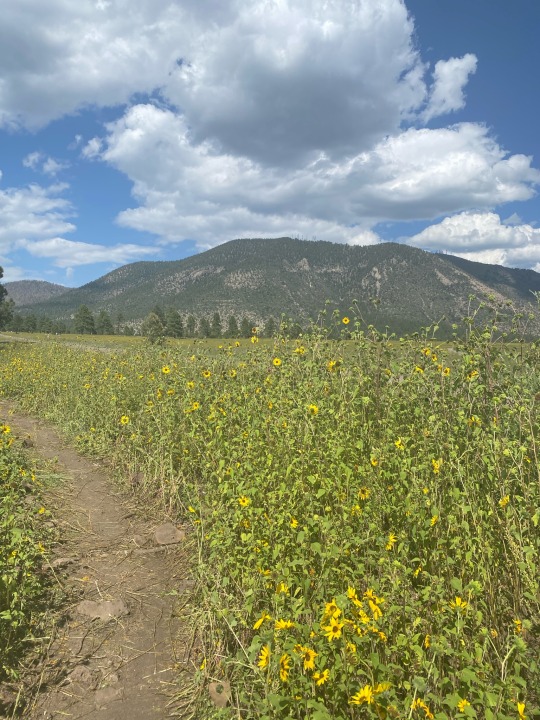
9/5/21 DOP 21/100
Textbooks and flowers from this week
Trying to balance classes, two jobs, and household chores. Failing at the household chores. Please send motivation to do the dishes thanks :)
#they haven’t been touched#in like 3 days#send help#studyblr#gradblr#studyspo#textbooks#books and flowers#mountain life#sustainability#days of productivity
12 notes
·
View notes
Text
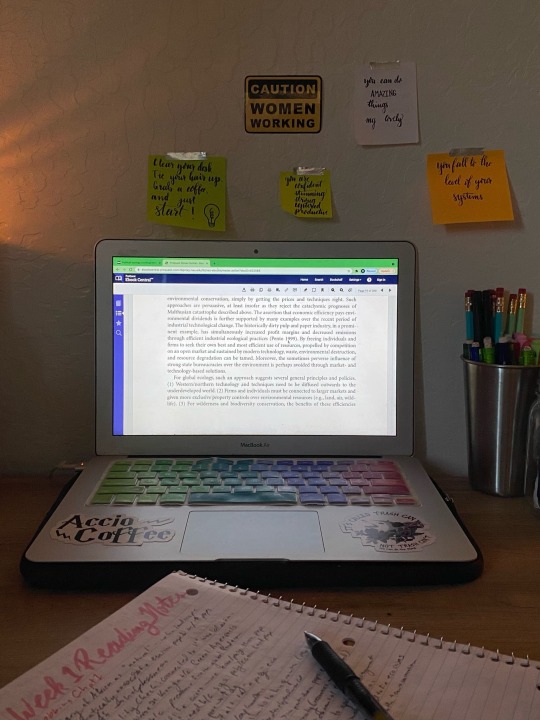


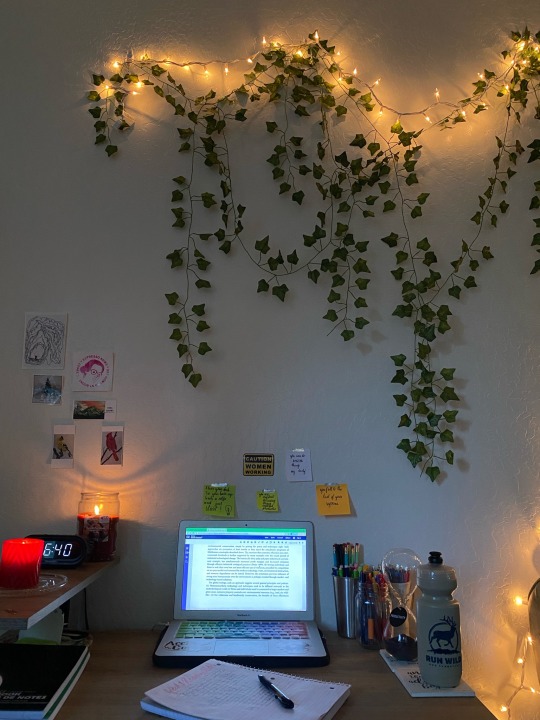
9/2/21 DOP 18/100
This week was insane but I took decent pictures for once. Hoping to get ahead for next week so I don’t have last weeks insanity happen again. Lots of reading in grad school and way more creative writing than I was expecting.
#gonna have more content soon#studyblr#studyspo#gradblr#bujo#bujo spread#deskinspo#notebook#writing#readings#days of productivity#sustainability
30 notes
·
View notes